Yemen conflict: A nation's agony as cholera and hunger spread
- Published
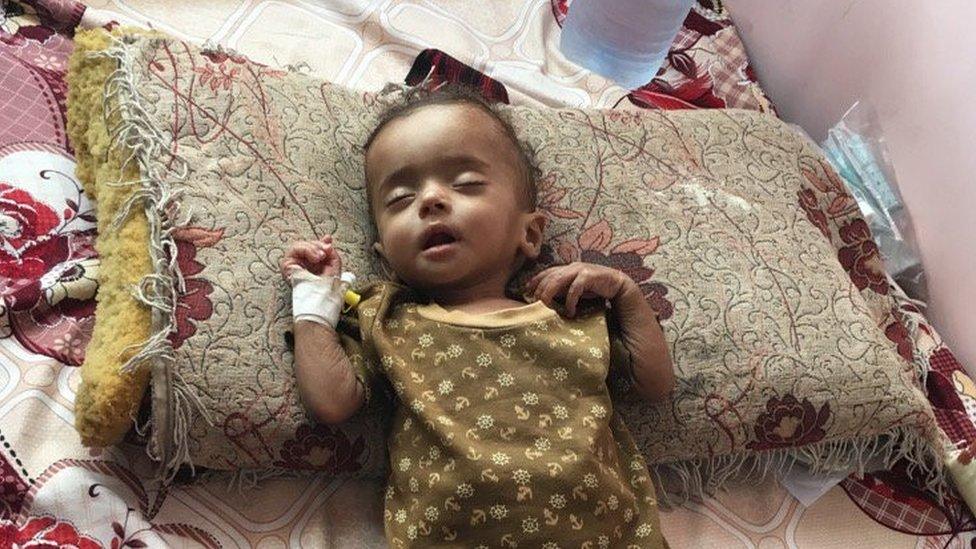
Ahmad weighs half what he should at 10 months old - acute malnutrition rates in Yemen have soared since the war
Amid UN warnings of the dire humanitarian situation in Yemen, the BBC's Orla Guerin has overcome attempts by Saudi Arabia to block her team from entering the country and has seen for herself the depth of the suffering.
Yemen's health, water and sanitation systems are collapsing after two years of war between government forces - backed by a Saudi-led coalition carrying out air strikes - and the rebel Houthi movement.
The conflict and a blockade imposed by the coalition have triggered a humanitarian disaster, leaving 70% of the population in need of aid.
Orla has been tweeting, external about what she saw.
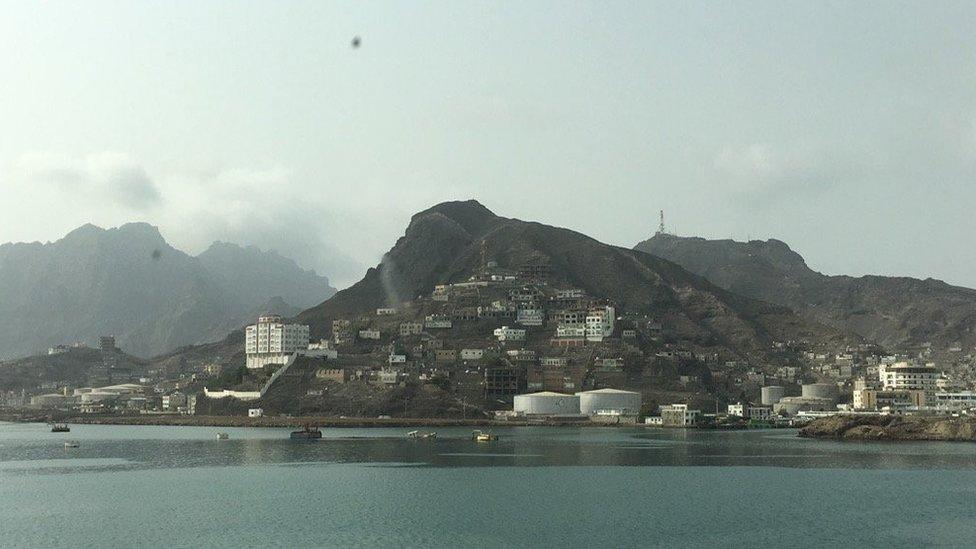
We reached the Southern port of Aden after 13 hours at sea. Saudis grounded the UN plane due to fly us in
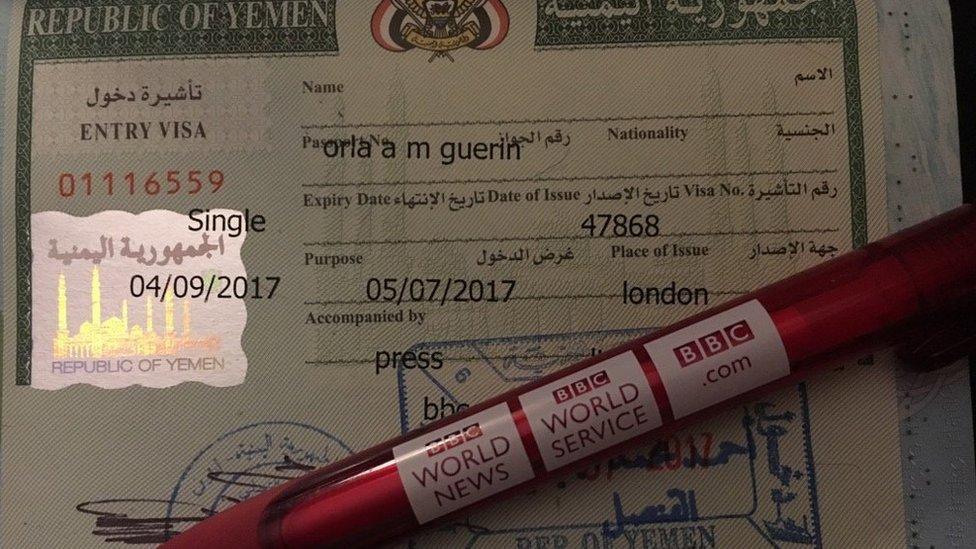
The Saudis prevented us from flying into Yemen though we all had visas from the internationally recognised government
In a hospital in Aden, Orla saw staff battle to save the life of an elderly cholera victim - Abdullah Mohammed Salem - who was brought into the building without a pulse.
Cholera is an acute diarrhoeal infection caused by ingestion of food or water contaminated with the bacterium Vibrio cholera.
Most of those infected will have no or mild symptoms but, in severe cases, the disease can kill within hours if left untreated.
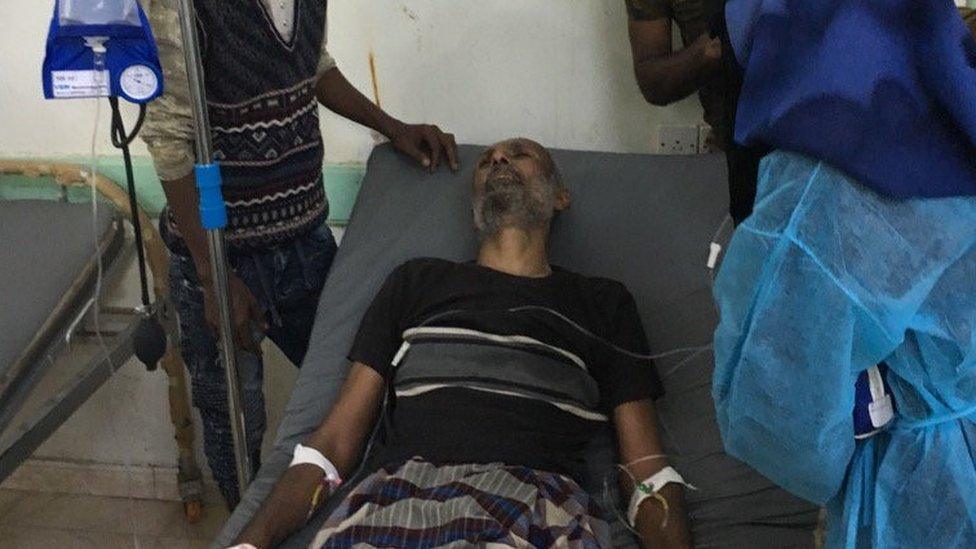
Abdullah Mohammed Salem was brought to hospital with no pulse but revived before our eyes. Most cholera victims recover quickly - if treated
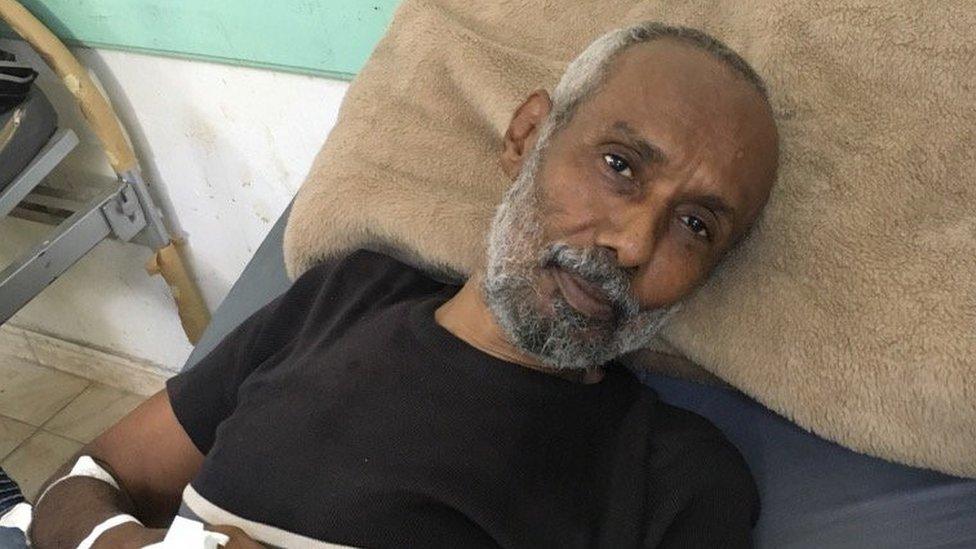
His life was saved in minutes
Hundreds of thousands of Yemenis have contracted cholera in recent months, making it the worst outbreak in history.
Hospitals are overcrowded and severe food shortages have led to widespread malnutrition, making people - especially children - even more vulnerable to the infection.
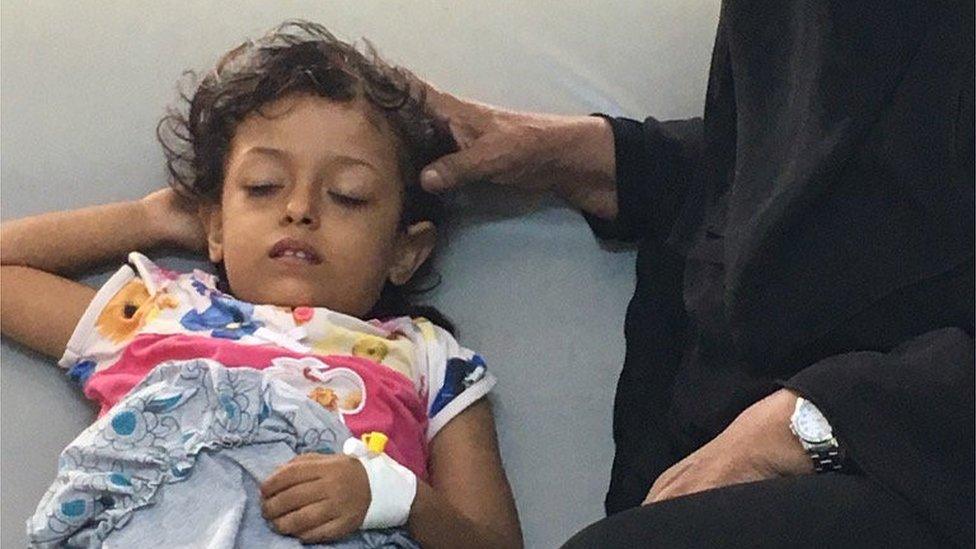
Malak, whose name means angel, is too weak to hold her head up straight so her mother does it for her
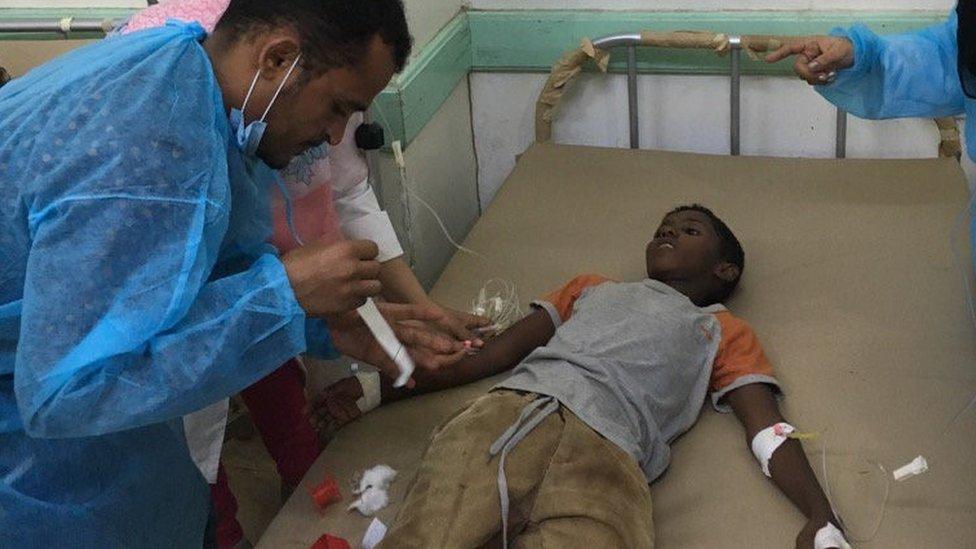
Thirteen-year-old Hassan got prompt attention in Aden but one person is dying every hour from this treatable disease
Some 60% of Yemenis do not know where their next meal will come from and the World Food Programme is warning of the danger of famine.
Doctors told the BBC that Yemen was in danger of losing its future, with 500,000 children now severely malnourished.
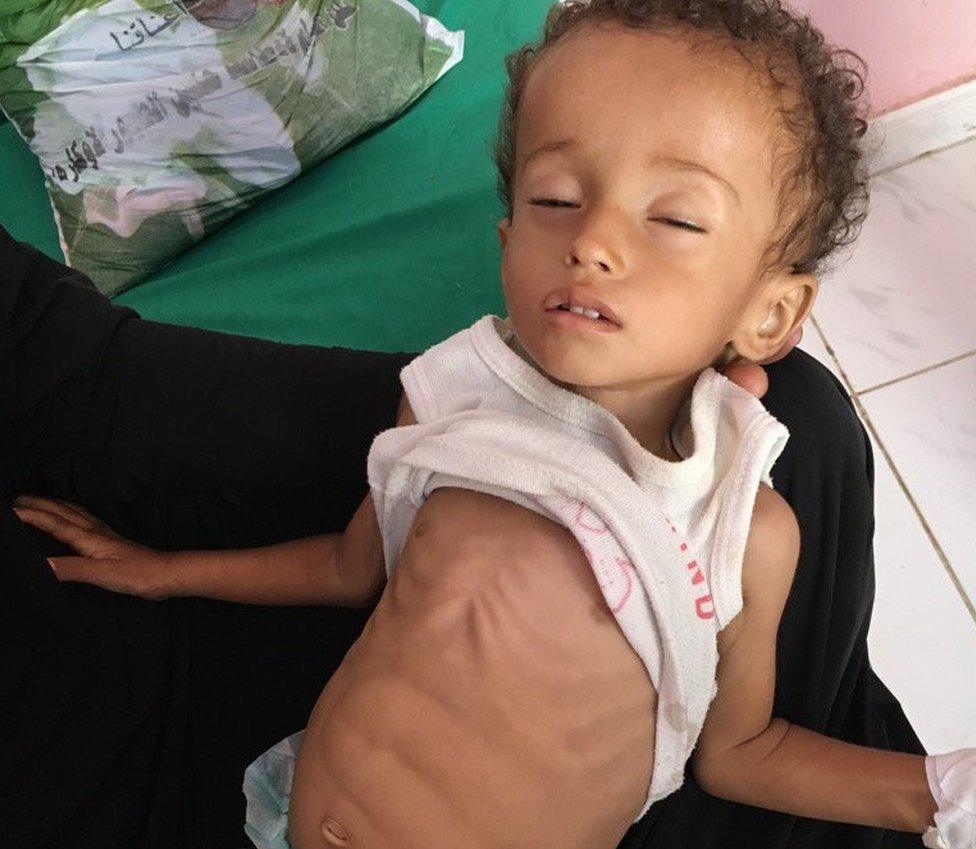
If you remember nothing of Yemen remember Hussein Mazen Hussein - malnourished and fighting for every breath
In two years of war, houses, hospitals and schools have been destroyed by Saudi airstrikes and more than 3,000 civilians have been killed.
Some people are living in the rubble of what were once their homes.
Yet despite the destruction, no side appears close to a decisive military victory.
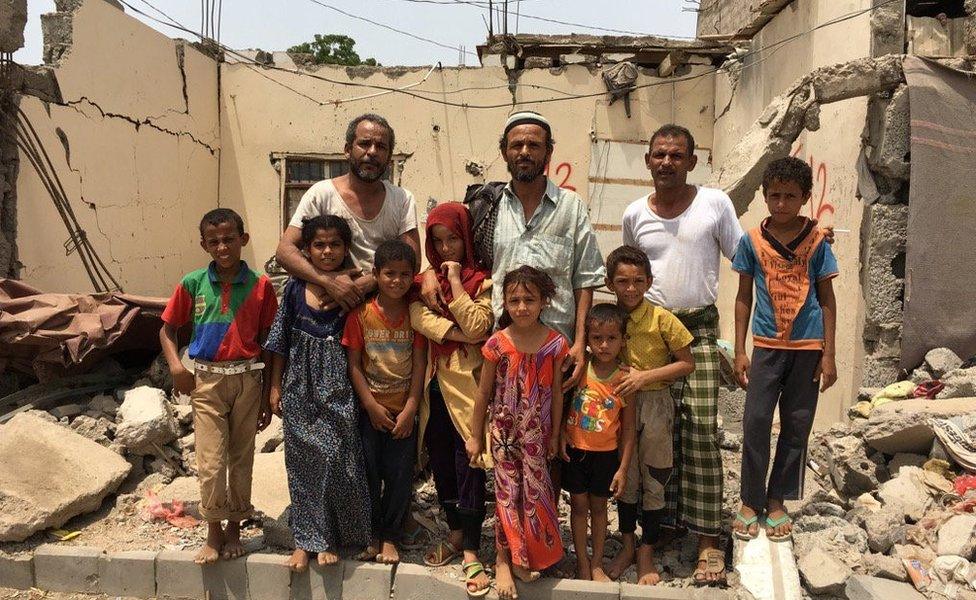
The Awal family in the wreckage of their home - hit by two Saudi air strikes. Some of them still live in the ruins
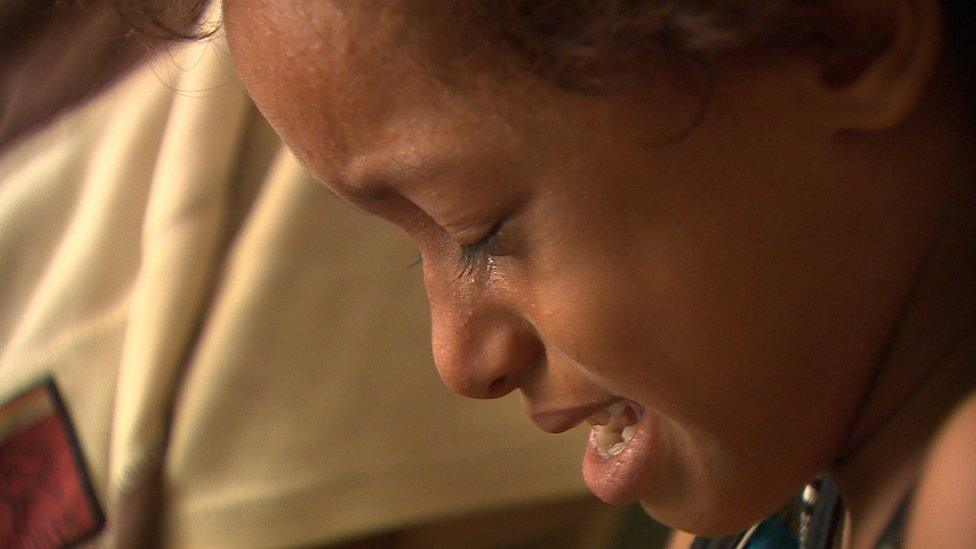
Civilians are under fire from both sides in Yemen. Imad, 10, used to love football but lost both legs to Houthi shelling
Pro-government forces - made up of soldiers loyal to internationally-recognised President Abdrabbuh Mansour Hadi and predominantly Sunni southern tribesmen and separatists - stopped the rebels taking Aden.
Mr Hadi and his government have returned from exile and established a temporary home there. But they have been unable to dislodge the rebels from their northern strongholds, including the capital Sanaa.
The sides have drifted into stalemate - but the human suffering continues unabated.
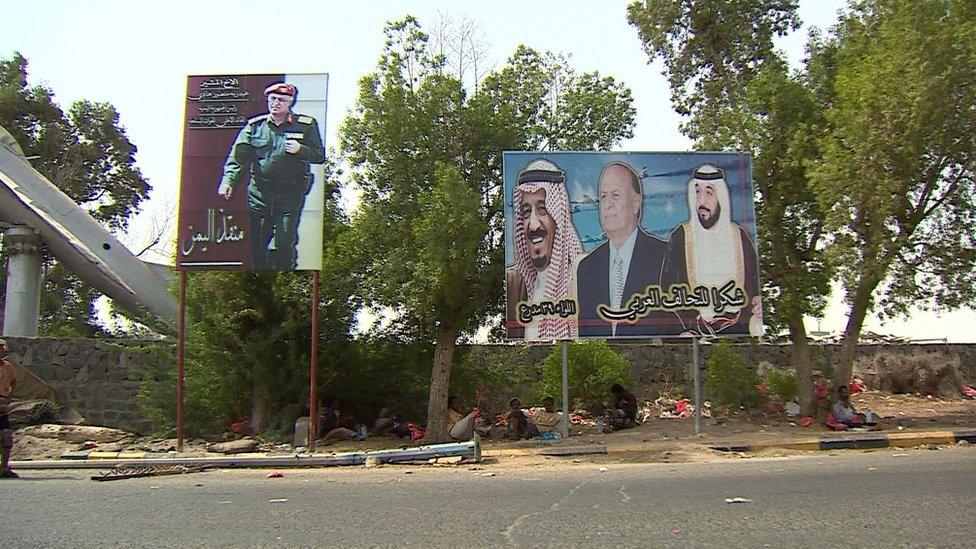
After two years of war a military stalemate - Yemen’s president still not restored to the capital by Saudi allies